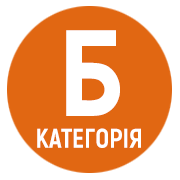THE JEWISH QUESTION IN THE VISION OF THE ELITES IN THE KHARKIV PROVINCE OF THE RUSSIAN EMPIRE IN THE EARLY 80’S OF THE XIX CENTURY
DOI:
https://doi.org/10.32999/ksu2786-5118/2021-36-6Keywords:
Pale of Settlement, pogroms, imperial elites, provincial commissions on the Jewish question, discourseAbstract
The purpose of the study is to establish the direction of judgments on the Jewish question among the social elite in the Kharkiv province after the pogroms of the spring and summer of 1881, to determine the factors that influenced the formation of views. Methods. The case method, comparative analysis, study of narrative texts are applied. The possible correlations between the circumstances of the personality formation and their judgments on the Jewish question have been established through prosopographic analysis. Results. In Kharkiv province being the site of an experiment in the Jews selective integration outside the Pale of Settlement for decades and where there were no pogroms, the idea of the gradual emancipation and the benefit of Jews as subjects dominated in the evaluation of the Jewish activities despite the pressure of the official discriminatory discourse. It is noteworthy that the career paths of the supporters of these views did not intersect with the Pale of Settlement. Those whose civil service took place in the Pale were more biased in their judgments. They saw the cancellation or alleviation of restrictions on the living and social activities of Jews as a threat and described it through judgments and images that had been governing in the empire while characterizing the traditional Jewish communities for a long time. Their conservative and protective position also was consistent with the concept of modern anti-Semitism increasing in the Russian Empire at this time. The corporate interests and the normalization of judgments about Jews as a group deprived of subjectivity with the corresponding presupposition of manipulations with their status were the common denominator for the Jewish question assessment in the studied environment. Conclusions. The study confirms that after the first wave of pogroms of 1881, there was no unified position on the Jewish question in the educated social circles of the empire, and the views ranged from liberal to Judaophobic. Thus, the change in the Jewish policy during this period was more the result of increased absolutism, the strengthening of supporters of segregation and displacement of Jews at the highest levels of the empire than the dominance of such views among the heterogeneous elite.
References
Гаухман М. «Криві дзеркала»: дискурси антисемітизму в громадському житті Російської імперії 1903–1914 рр. (на прикладі Правобережної України). Judaica Ukrainica. 2012. Vol. 1. P. 111–141.
Гольдин С. Еврей как понятие в истории имперской России. «Понятия о России»: к исторической семантике имперского периода. Москва : Новое литературное обозрение, 2012. Т. 2. C. 340–391.
Замечания на записку князей Голицыных о черте оседлости евреев, составленные служащим в Министерстве Финансов, Статским Советником, Н.Д. Градовским. Санкт-Петербург : Типография В.Ф. Киршбаума, 1886. 261 с.
Каппелер А. Росія як поліетнічна імперія: виникнення, історія, розпад. Львів : Видавництво Українського Католицького Університету, 2005. 360 с.
Миллер А. Империя Романовых и национализм: эссе по методологии исторического исследования. Москва : Новое литературное обозрение, 2006. 248 с.
Натанс Б. За чертой: евреи встречаются с позднеимперской Россией. Москва : РОССПЭН, 2007. 463 с.
Труды губернских комиссий по еврейскому вопросу : в 2 ч. Санкт-Петербург : Государственная типография, 1884. Ч. 1. 660 с.
Труды губернских комиссий по еврейскому вопросу : в 2 ч. Санкт-Петербург : Типография министерства внутренних дел, 1884. Ч. 2. 1356 с.



